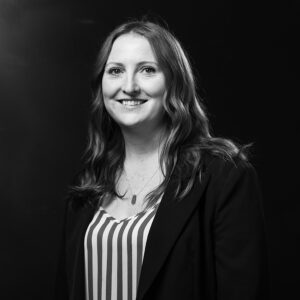Harvey John
Unit 2 Ferry Wharf
Hove Enterprise Centre
Basin Road North
Portslade, East Sussex
BN41 1BD
What do your go-to restaurant, favourite holiday destination and career have in common? Your comfort zone may have something to do with it.
There is not a single week when the recruiters are not faced with the eternal candidate’s dilemma: Should I give a new opportunity a chance? Should I leave my comfort zone and explore the unknown?
Firstly let’s look at your go-to restaurant.
Imagine a life when all you’ve ever tried is [insert generic restaurant name here] . You thought it was okay so there was no need for you to check out any alternatives. Actually, imagine that you’re so set on your favourite that you haven’t even thought of trying somewhere new. Would you be happy? Possibly. Is there a chance you could be happier? Are you missing out on something? How would you know?
And now – moving on to an even more exciting topic – your favourite holiday destination.
Just drift off to those memories of the perfect white sandy beach and the sun touching your skin while you’re sipping on the 4th (add cocktail/mocktail of choice here) and it’s not even lunchtime yet! Paradise. Let’s say that you’ve spent every single summer break there and it’s just perfect. You’ve never considered going anywhere else. And it’s great, honestly. Is there any chance you could be happier? Are you missing out on something? Well – you don’t know for sure.
These are just theoretical examples. Of course, most of us would try more than one kind of cuisine and would consider going to various holiday destinations. But when it comes to bigger decisions – such as, for example, changing a job, some serious mechanisms come into effect.
Why do we struggle to leave our comfort zone?
We have a natural tendency to avoid potential loss (and it’s way stronger than the urge to acquire additional gains). That’s why you might be really keen to try a new restaurant (not that much to lose), a bit more wary when choosing your next holiday destination (a slightly higher stake), and totally rethink a new job opportunity hundreds of times (big risk).
That phenomenon, loss aversion, was proposed as an explanation for the endowment effect – the fact that people usually place a higher value on a good that they own than on a similar good that they do not own. It’s actually pretty funny when you think about it.
According to the studies on this subject – people tend to pay more to retain something that they own already, than to obtain something new. (It works even if there is no cause for attachment or even if the object was assigned to them only minutes ago). For example, participants first given a Swiss chocolate bar were generally unwilling to trade it for a coffee mug, whereas participants first given the coffee mug were generally unwilling to trade it for the chocolate bar.***
Even though it may seem a bit ridiculous, this mechanism is influencing us on a daily basis. We’re not saying that you should ditch your favourite haunt or never visit your favourite Canary Island again. We just wanted to make you aware of a process that may not always be working in your favour.
Your career…
So when you’re thinking of whether or not you should pursue a new job opportunity, try to keep in mind that your brain is playing some tricks on you. You are literally hardwired to avoid any potential losses even if the prize, (a potential benefit,) may be great. And even though this mechanism used to protect us back in the day, it’s worth remembering that it’s not always rational and useful nowadays.
Hopefully this piece brought back some nice summer memories. Or if not, go and get some food, or book a holiday! It always helps.
—————-
If you would like to see our company updates and industry insights, follow our LinkedIn page here.
Author


